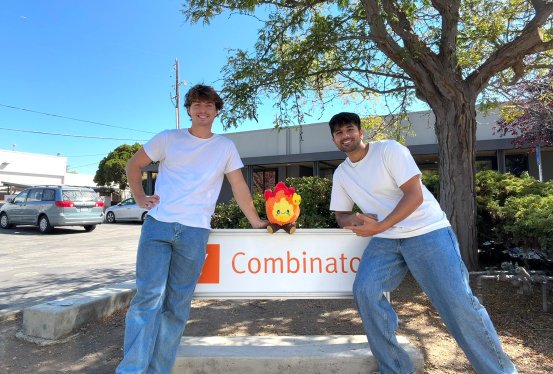A couple of months ago, the founders behind the YC-backed social app Candle were in what they called “pivot hell.” They cycled through more than a dozen ideas after joining Y Combinator’s Fall 2024 batch, all while the clock on their seed funding was ticking down.
Alex Ruber, previously an engineer at Apple, and Parth Chopra, formerly an engineer at Asana and Twitter, had a history of building projects together. Their previous venture was Encore, a conversational AI shopping tool that secured their entry into Y Combinator and with which they raised two million dollars. However, the technology, while functional, faced challenges with its unit economics. Ruber explained that the secondhand shopping space is a difficult market, requiring a company to become a dominant force like Google Shopping or build a massive marketplace like Whatnot or eBay, a target they did not want to pursue.
This led to months of rapid experimentation between last December and April. The team tried over ten different ideas in areas like fashion and sports, but none gained traction. The intense pressure began to strain their personal relationships with friends and partners, a common experience for early-stage founders. Ironically, it was this very tension that sparked the idea that finally worked.
The first version of Candle was simple: a swipeable deck of questions designed to spark conversations between partners. An intern, who is now the startup’s marketing lead, shared a TikTok about the app that went viral, unexpectedly gaining significant traction in Europe. Downloads surged, feedback poured in, and the team leaned into the momentum.
That early prototype evolved into Candle, a lightweight and gamified app that helps couples and close friends stay connected. Six months after launch, Candle has grown to 300,000 users, including 150,000 couples. The company reports more than 250,000 monthly active users, with a daily active to monthly active user ratio of around fifty percent. This is a strong signal of engagement for a consumer social app and indicates potential for becoming a daily habit. The app has also ranked in the top 25 on Apple’s App Store multiple times.
Candle’s approach is focused on sustaining existing relationships through small, daily prompts and games, rather than helping people find new ones. Users answer quick questions, compare results, share photos, and maintain a streak to show how consistently they have checked in. These mechanics are designed for mobile engagement, targeting Gen Z and young millennials.
In an atypical move for a consumer social app, but one more common among newer AI-native products, Candle introduced monetization early. Its monthly revenue recently crossed $150,000, implying an annual run rate above one million dollars. The app uses a freemium model where the free tier offers daily prompts, photo updates, and core games, while a premium subscription unlocks extra content and features. This early monetization is a strong signal of product-market fit, showing that users find enough value to pay for enhanced experiences.
Candle is one of a few apps in the relationship space, alongside others like Paired and Couple Joy, designed to make relationships more fun. These apps tap into a cultural trend where post-pandemic work habits, solitary meals, and endless social feeds have hollowed out day-to-day connections, leaving many people feeling lonelier than ever.
For Candle, the bet is that the next wave of social apps will be less about broadcasting to strangers and more about making it easier to show up daily for a few close people. The team hopes to combine this insight with a founder and creator-led distribution strategy on platforms like TikTok and Instagram to avoid the fate of many consumer social apps that surge quickly only to stall months later.
The big questions that remain are about durability and depth. Can an app based on daily photos and games sustain user retention over twelve, twenty-four, or thirty-six months? Can Candle expand from lightweight prompts into a broader suite of connection features without making the experience feel bloated? The founders say that is the roadmap, which includes adding more ways to earn points, called sparks, for a wider range of interactions and introducing richer features that promote consistency.
The seed money originally raised for the team’s earlier shopping app will now fuel Candle’s growth. These resources will allow them to hire more engineers, speed up experimentation, and scale faster. Their existing backers, including Goodwater Capital, Pioneer Fund, Progression Fund, and Y Combinator, are fully supportive of the new direction.

